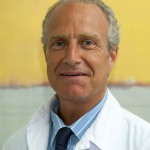5th Closed Scientific Expert Meeting of the Editorial Board

Optimal treatment in children with FH urgently needed!
Familial hypercholesterolaemia (FH, inherited high cholesterol) is the most common inherited cause of premature coronary heart disease, affecting about 1 in 200-250 people (1). This means that worldwide, one baby is born with FH every minute. Therefore, diagnosing children with FH earlier, so that lifestyle…
read more »
Insights from Chile: Rodrigo Alonso, Clínica Las Condes, Santiago de Chile
The Healthcare Perspective in South America
read more »
Insights from Brazil: Raul Santos, InCor-University of Sao Paulo
The Healthcare Perspective in South America
read more »
Outcomes data are critical
The Healthcare System Perspective in Europe: Francois Mach, University of Geneva, Switzerland
read more »
Collaboration between patient associations and healthcare professionals is key
The Patient Perspective: Gunnar Karlsson, FH Sverige
read more »
Many key barriers are amenable to change; new strategies are needed
General considerations: David L. Hare, University of Melbourne Australia
read more »
What prevents high risk patients gaining access to treatment with PCSK9 inhibitors?
Roundtable discussion from the Fifth Closed Expert Meeting of PCSK9 Forum focused on identifying barriers to access to treatment with PCSK9 monoclonal antibody therapy, from both the patient and healthcare system perspectives. Access in developing countries is especially problematic, according to insights from South America….
read more »
PCSK9 inhibitors: Who and when to treat?
Professor Tony Wierzbicki (Guy’s & St Thomas’ Hospitals, London, UK) discusses considerations for the use of PCSK9 inhibitors from a policy maker perspective (NICE, National Institute for Health and Care Excellence in the UK). He raises issues about the data for each high risk patient…
read more »
Current status of IVUS studies of plaque burden: what next with GLAGOV?
Over the last decade, the use of serial intravascular ultrasound (IVUS) imaging has been critical for defining the relationship between achieved LDL cholesterol levels and atherosclerotic plaque burden. In this overview, Professor Steve Nicholls (South Australian Health and Medical Research Institute, Adelaide, Australia) discusses the…
read more »







